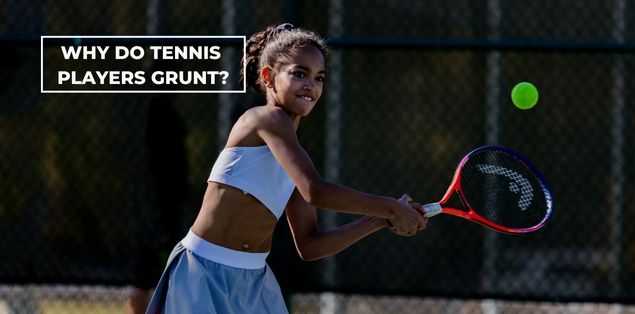“Why do tennis players grunt?” You might have wondered if you’ve ever watched a tennis match involving Maria Sharapova, Serena Williams, or Roger Federer.
Some professional players will remain silent the entire four hours of a game, and then some people scream loud enough to startle a small village. It just seems unfair.
Tennis is a game famous for grace and good sportsmanship, and grunting isn’t so graceful. So it makes sense that tennis fans who have never played the sport would wonder why pro athletes prefer to grunt.
In the end, you’d imagine that grunting could even be problematic to a player’s reputation with spectators, rival players, and sponsors.
Let us find out exactly why tennis players grunt.
Why Do Tennis Players Grunt so Loudly?
Although grunting frequently occurs in tennis, regardless of gender or skill level, some people may roll their eyes at some of the excuses for it. Here are a few explanations for why a tennis player would grunt and groan while on the court.
It Maintains Player Rhythm
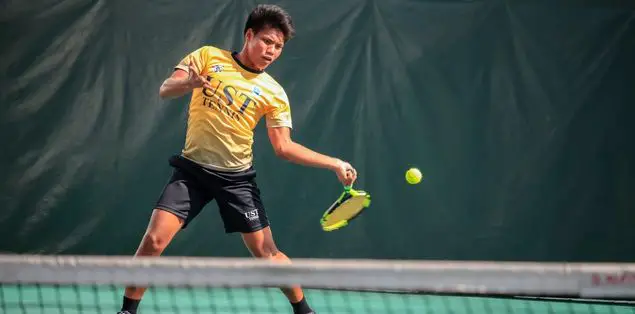
Tennis professionals place a lot of emphasis on rhythm during lengthy rallies. For players to keep up with their opposition, they must approach many distinct things correctly. Even though it might not seem important, grunting and groaning during the point can aid. It helps the player remember when to breathe out and how to position themselves for a potential return shot.
In the middle of a game, if a player loses their focus, it usually signifies they aren’t giving it their all. Perhaps they are getting tired from their training or have become sluggish. Groaning and moaning can assist someone in regaining focus.
That extra step is necessary to establish a rhythm that tennis players can enjoy. Every player should look for it when engaging in in-game action.
It’s Normal
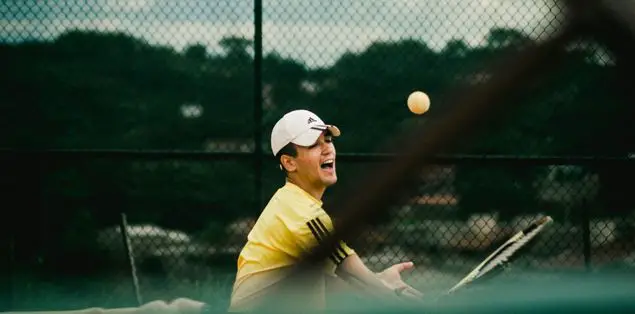
Making short, uncomplicated noises is far more natural, whereas prolonged grunting and moaning seem to be more of a specific tactic. Even players regarded as quiet will occasionally create a slight sound when they strike the ball.
Although some players are a little self-conscious about the grunt, nobody should think negatively about that.
Improved Breathing
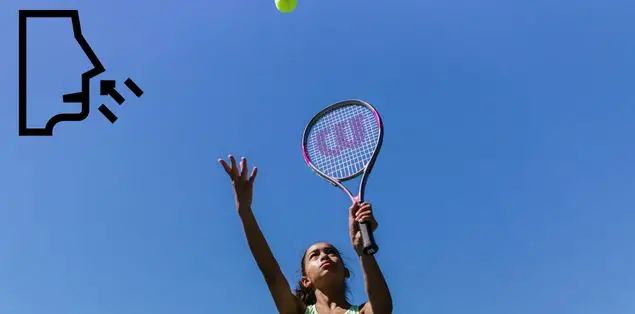
Proper breathing is necessary for any player to succeed in sports. Some athletes fail to breathe frequently, while others fail to breathe appropriately. Some tennis coaches may instruct their students to exhale during a shot to keep things in order.
A player might not even be aware that they are generating a loud sound when they hit the ball after they begin to comprehend the value of exhaling at the right moment. However, the fact that they are producing such a loud sound needs to be explicit since it simply becomes ingrained in their muscle memory.
It Boosts Power
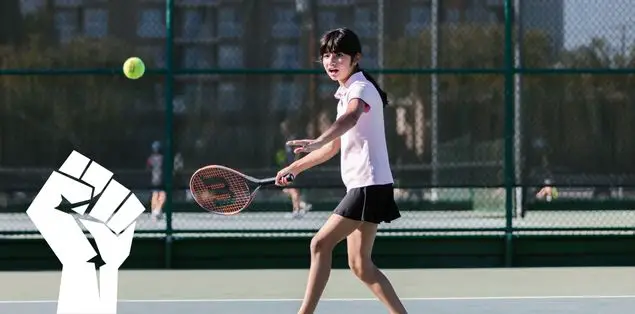
Some players are sure that generating a grunt when striking the tennis ball offers them more power. But, as ridiculous as that may sound to some, there is some indirect reality to it.
The grunting and moaning of players who feel more power are likely a rhythm mechanism that helps them concentrate on grabbing the ball at the appropriate time and exhaling at the right time. It is one method to get everything in the right alignment for those that have trouble timing everything.
Studies show grunting improves hitting accuracy and power. Players that grunt as often as possible as their standard form of play strike the ball 3 to 5% harder than when they remain silent.
Again, most of this has to do with breathing and rhythm, but if doing so helps a player hit the ball harder and more consistently, they should keep doing it.
To Improve One’s Competitiveness
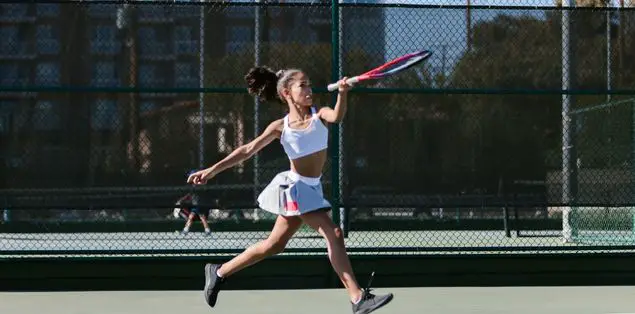
Prolonged groans and moans can hinder an opponent’s ability to get ready to hit the ball in their style. Numerous athletes have voiced their displeasure over grunting opponents who hold their grunts for an excessive amount of time. This decision depends on the umpire, who may give a warning or impose further punishments if it appears to be an explicit attempt to confuse the opponent.
Players try to game the system as much as they can when they groan and make sounds beyond their typical strokes. The good news is that many people react badly to a person using such sportsmanship in the modern age.
Most fan bases will start to recognize it very fast if the umpire does not immediately call it out. However, when a player makes very loud noise at inappropriate times, umpires will quickly put them in their place.
World-class Athletes Do it
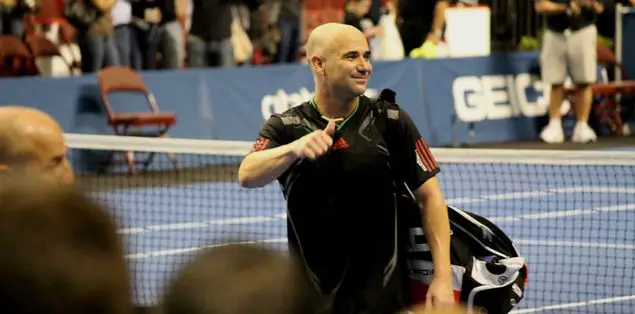
Players try to imitate their idols as much as they can in all professions. Andre Agassi and Monica Seles inspired many members of the present generation to hit the ball loudly. Professionals like Serena Williams, Maria Sharapova, and Rafael Nadal actively inspire the younger generation.
Younger players will at least try to make moans and grunts when striking the ball, even though it may not seem like the best reasoning in the world. In the end, some players may feel it is not helping them, while others may notice an improvement in their skill and continue using it.
The popularity of some items fluctuates, just as that of fashion trends. Perhaps in 20 years, grunting will seem like a historical relic. But, for the time being, it’s something that fans hear a lot about, and those players impact the upcoming generation.
Who Started The Tennis Grunting?
The tennis grunt’s inventors are Monica Seles and Jimmy Connors.
Does Grunting Make You Better At Tennis?
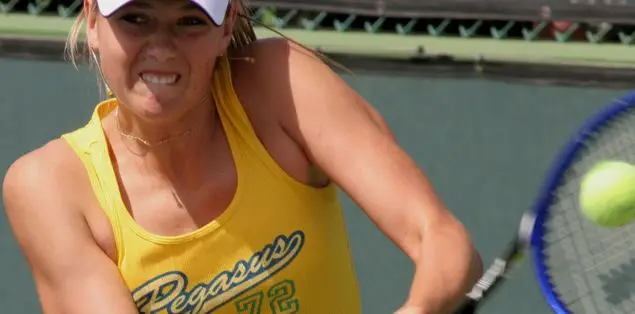
There is proof there is an improvement in hitting performance when scientists examine a grunt’s impact. For example, grunting boosted the groundstroke striking velocity of expert college tennis players by 3.8%.
Grunting players had a 4.9% increase in serve velocity for a serve. It resulted in “grunted serves” being struck at a speed of 7 kph more quickly than those that weren’t.
Although no additional physiological costs were associated with the increase in hitting velocity, there was an increase in force output as evaluated by muscle activity associated with the sense of effort and energy use. Overall, evidence implies that grunting is a performance-improving tactic we can use throughout a game.
What Do Players Say About Grunting?

Professional tennis player Serena Williams said she basically plays her game, and sometimes she grunts and sometimes doesn’t. She established that it’s something professional tennis players do when intensely engaged in the sport. But, she added by saying that she’s just exhausted when she does it and doesn’t think about it. The fact that her opponent is grunting doesn’t matter to her.
Nick Bollettieri, a professional tennis coach who has worked with several noisy “grunters,” including Andre Agassi, the Williams sisters, and Monica Seles, has come under fire for allegedly encouraging grunting to give his students an advantage over others.
He added he prefers to use the word “exhaling,” though. If you take a look at other activities like weightlifting or squats or a golfer making the shot, or a hockey player making the play, he believes exhaling is a release of energy in a positive way.
Final Words
Not every player will gain from grunting. It happens in many different sports. For example, the finest illustration could be weightlifting, where each repetition can be directly equated to a groundstroke in tennis. While engaging in these sports, breathing properly is crucial. Also, some people exhale louder than others.
All the noises would not be a major concern if tennis weren’t such a silent sport. Only in tennis is it a big concern due to the microphones picking up all sounds made during a point. Grunts would be audible throughout a game of basketball, football, and other major sports if the audience was silent and microphones were placed close to the action.
